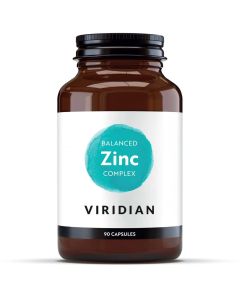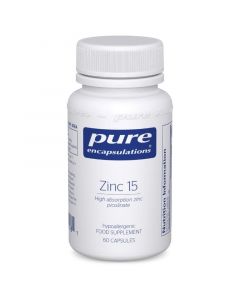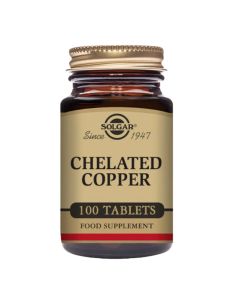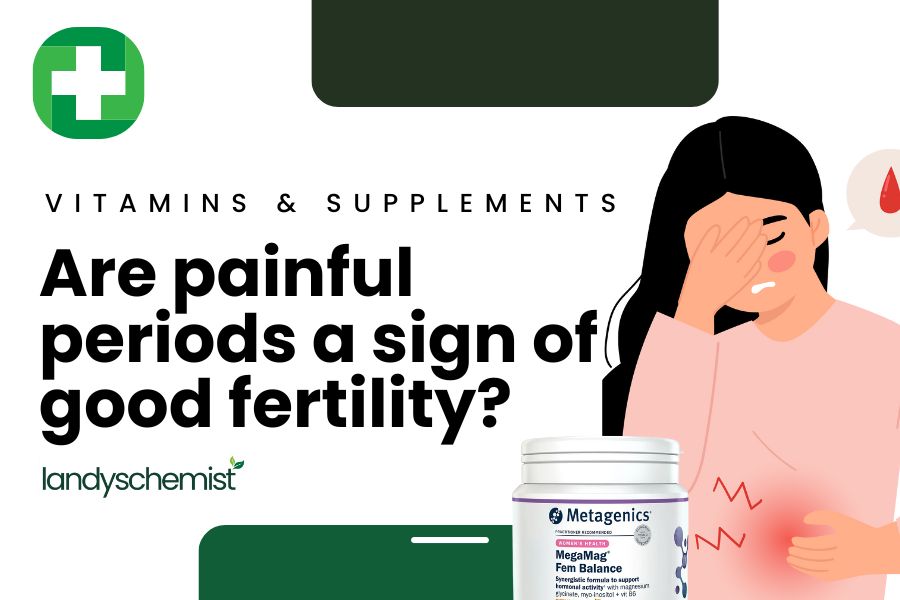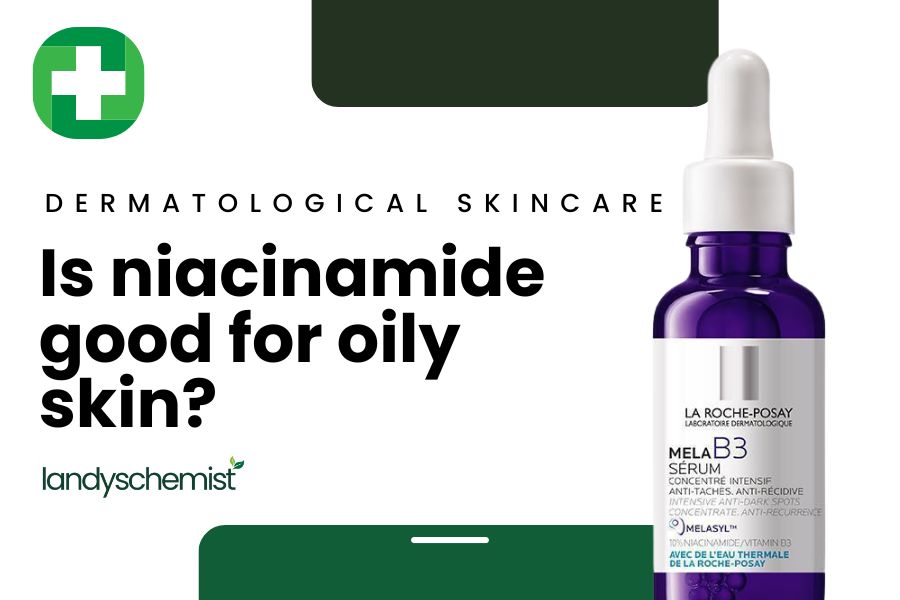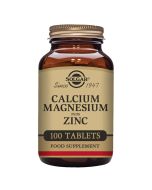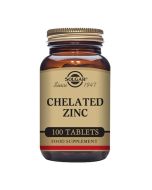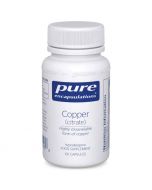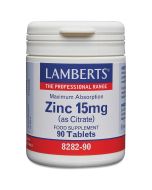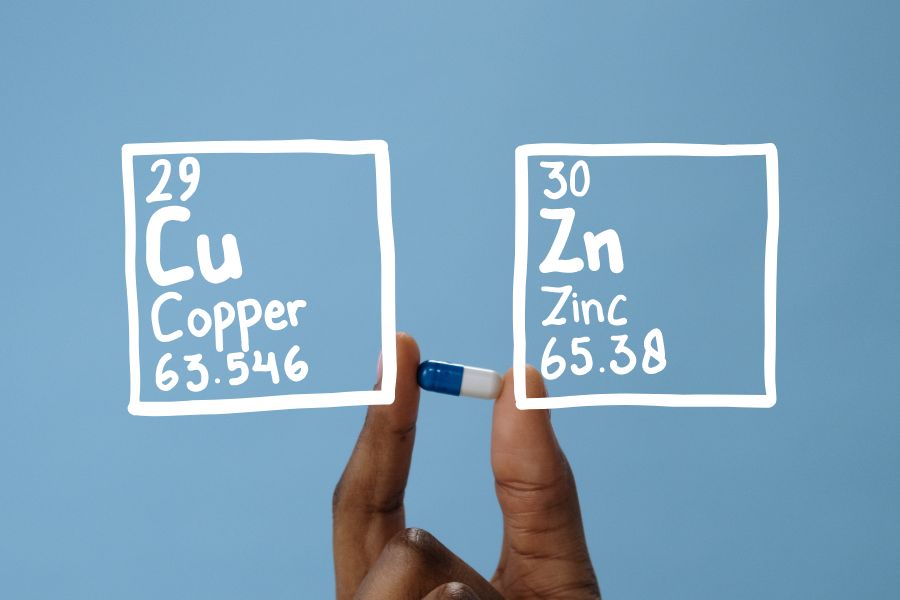
Should You Take Zinc and Copper Together?
Zinc and copper are both essential minerals, meaning that our bodies need them to function properly but cannot produce on their own. This means we must obtain them through our diet or supplementation. These minerals play vital roles in various bodily functions, such as maintaining strong bones, supporting immune function, regulating metabolism, and aiding in the production of enzymes and hormones.
Taking copper and zinc together
Copper and zinc have a complex relationship because they compete for absorption in the body. When both are present in high concentrations simultaneously, they can interfere with each other's absorption. This can lead to imbalances in their levels and hinder their proper utilisation.
As copper and zinc have distinct roles and functions in the body, maintaining a balance between them is important for overall health. Therefore, it is advisable to take copper and zinc supplements at different times, at least a few hours apart to minimise the potential for competition and ensure optimal absorption and utilisation of these essential minerals. It is generally recommended to take zinc before copper, as zinc can interfere more with copper absorption.
Common Signs of Copper and Zinc Deficiency
Copper deficiency symptoms:
- Anaemia: Copper is involved in the production and maintenance of red blood cells, so a deficiency can lead to anaemia.
- Fatigue and weakness: Insufficient copper levels may result in fatigue, weakness, and a general lack of energy.
- Pale skin: Copper deficiency can contribute to pale skin colouration.
- Neurological symptoms: Copper is essential for proper neurological function, so deficiency may lead to neurological symptoms such as numbness, tingling, or weakness.
- Bone abnormalities: Copper plays a role in bone formation, and a deficiency can affect bone health and lead to bone abnormalities.
Zinc deficiency symptoms:
- Impaired immune function: Zinc is vital for a healthy immune system, so a deficiency may result in frequent infections, slow wound healing, or impaired immune response.
- Skin and hair issues: Zinc deficiency can cause skin problems like rashes, acne, or dryness. Hair loss and brittle nails are also common symptoms.
- Growth and development issues: Zinc is crucial for growth and development, so deficiency in children can lead to delayed growth or development.
- Loss of appetite: A decrease in appetite or changes in taste and smell perception can be a symptom of zinc deficiency.
- Impaired cognition: Zinc plays a role in cognitive function, and its deficiency may result in difficulties with memory, concentration, or learning.
Ailments and conditions that copper and zinc supplementation can help with:
A balanced copper and zinc supplementation can potentially help with the following ailments and conditions:
- Immune function: Balanced copper and zinc supplementation can support a healthy immune system and enhance immune response.
- Skin health: Adequate copper and zinc levels promote collagen synthesis and wound healing, benefiting skin conditions and promoting healthy skin.
- Cognitive health: Copper and zinc are important for brain function, memory, and learning. Balanced supplementation may support cognitive health and neurological function.
- Connective tissue health: Copper and zinc are involved in the synthesis of collagen and elastin, contributing to the strength and flexibility of connective tissues such as bones, joints, and blood vessels.
The recommended daily dosage of Zinc and Copper
The daily recommended intake for zinc and copper varies, but generally, the body requires more zinc than copper on a daily basis. The recommended dietary allowances (RDAs) for adults are as follows:
- Zinc: The RDA for zinc varies by age and gender. For adult males, the recommended dosage is 11mg per day, while for adult females, it ranges from 8-9mg per day. Generally, supplementation doses for zinc deficiency range from 25 to 50 milligrams (mg) per day.
- Copper: The RDA for copper is lower compared to zinc. Adults over 18 are generally recommended to take around 900mcg per day.
Supplements containing both copper and zinc
While it's generally recommended to take copper and zinc at different times to minimise potential interactions, some supplements do offer both minerals together. The main reason for this is to offer convenience for those that prefer to take a single dosage daily. It is important to note that these formulas should contain careful formulations that provide balanced dosages of both zinc and copper so that they do not interfere with each other.
If supplementation is too high, then negative side-effects could occur. Copper toxicity and zinc deficiency are concerns that can arise from imbalanced supplementation.
Side effects of too much copper and zinc
Common side effects of taking too much copper include:
- Nausea and vomiting
- Stomach cramps and abdominal pain
- Diarrhoea
- Headaches
- Dizziness
- Metallic taste in the mouth
Common side effects of excessive zinc intake include:
- Nausea and vomiting
- Stomach cramps
- Diarrhoea
- Metallic taste in the mouth
- Interference with copper absorption
- Disruption of immune function
Recommendations
A Balanced Zinc and Copper Supplement
Zinc Supplement
Copper Supplement
Frequently Asked Questions
What foods contain Zinc?
Foods that contain zinc include oysters, beef, poultry, beans, nuts, and whole grains.
What foods contain Copper?
Foods such as shellfish, nuts, seeds, whole grains, legumes, and dark leafy greens are good sources of copper.
How much copper is safe during pregnancy?
It is generally recommended that a maximum of 1000mcg of copper per day is suitable for pregnancy.
How much zinc is safe during pregnancy?
The recommended dosage varies, but for pregnant women is for 7-9mg of zinc a day.
What is the recommended zinc to copper ratio for supplementation?
The recommended zinc to copper ratio in supplementation is generally around 8-10:1 (8-10mg zinc for every 1mg copper). This ratio helps maintain a healthy balance between the two minerals.
Can zinc and copper supplements cause interactions with medications?
Yes, certain medications can interact with zinc and copper supplements. It's important to inform your healthcare provider about any medications you're taking to ensure there are no potential interactions.
Can zinc and copper supplements help with hair loss?
Zinc and copper are both important for hair health, and deficiencies in these minerals can contribute to hair loss. Proper supplementation under professional guidance may be beneficial in addressing hair loss caused by deficiencies.
KEYWORDS: COPPER, ZINC, COPPER SUPPLEMENTS, ZINC SUPPLEMENTS, COPPER AND ZINC TOGETHER, COPPER DEFICIENCY, ZINC DEFICIENCY
PUBLISHED: 14/07/2023 16:06PM

